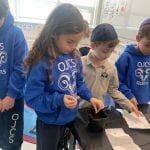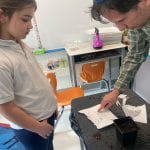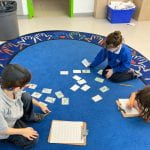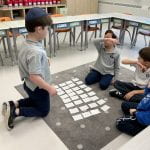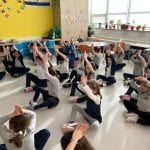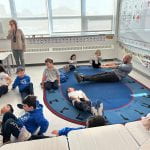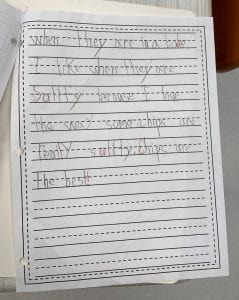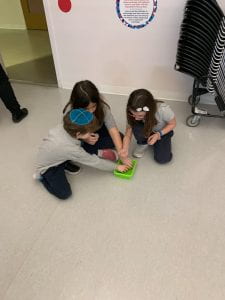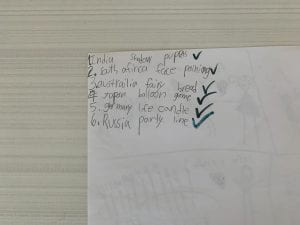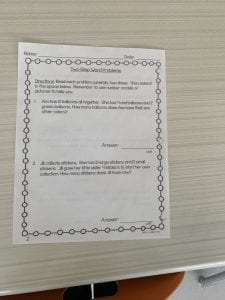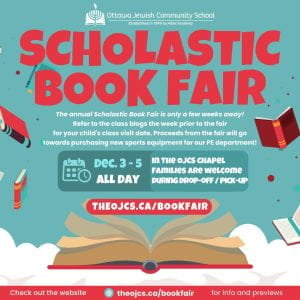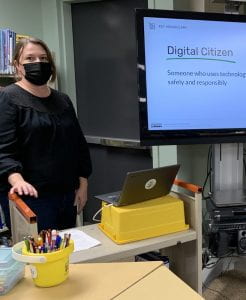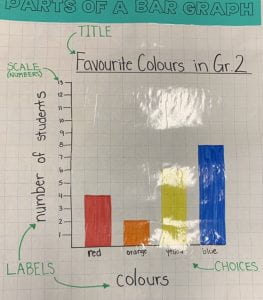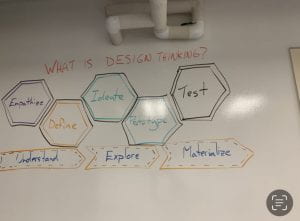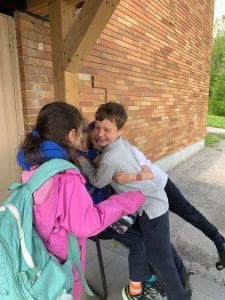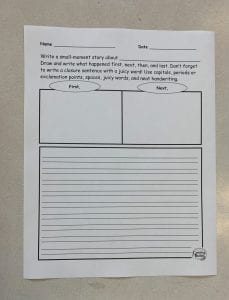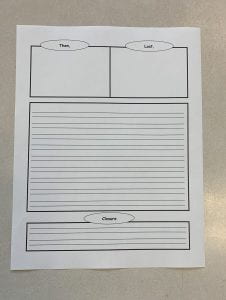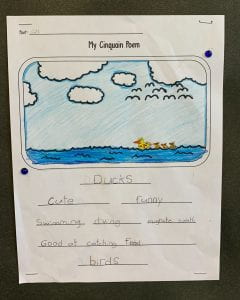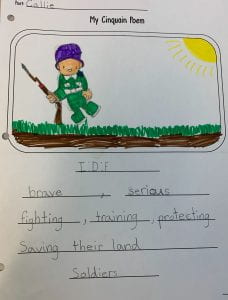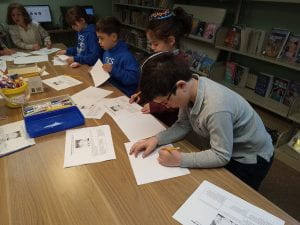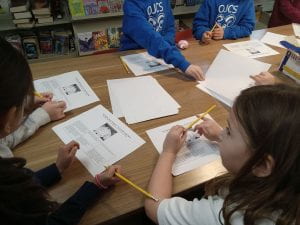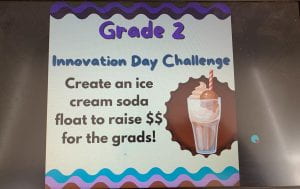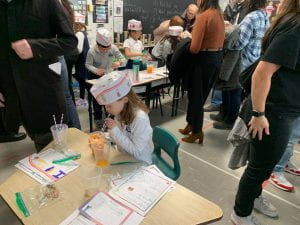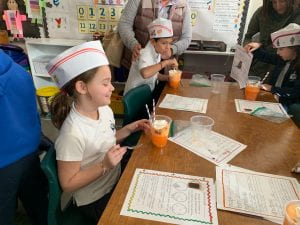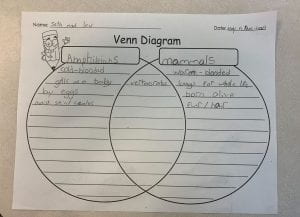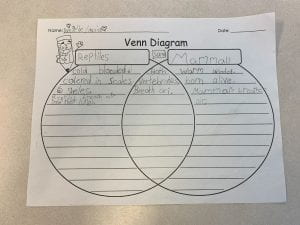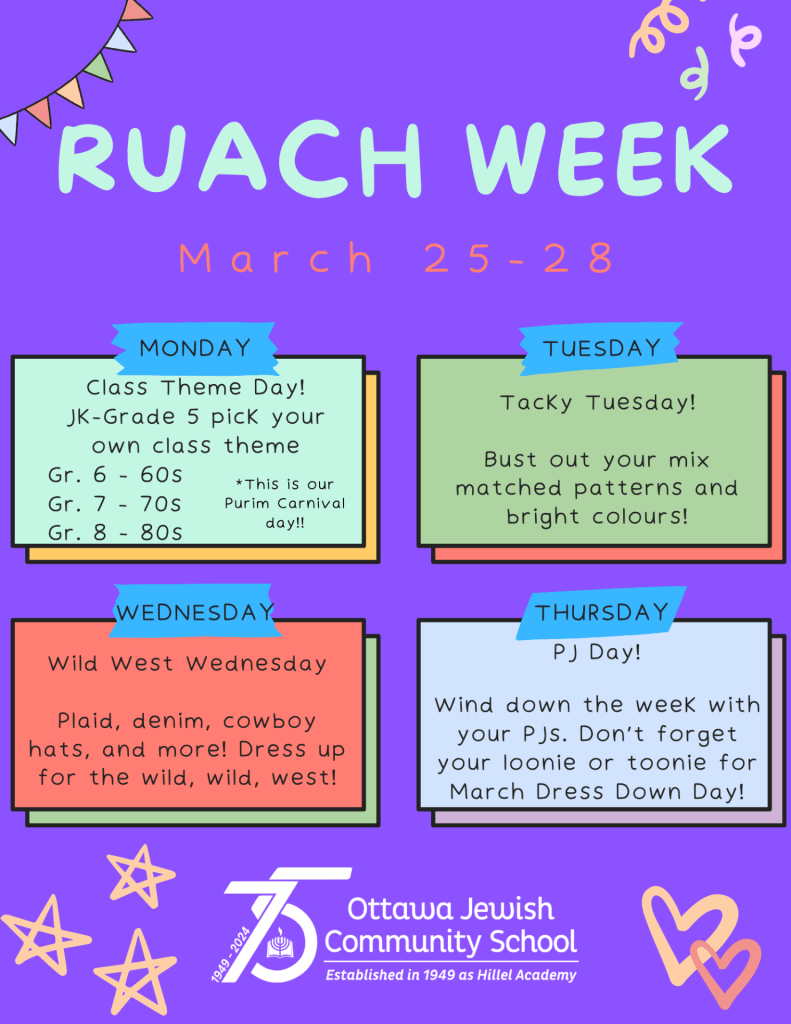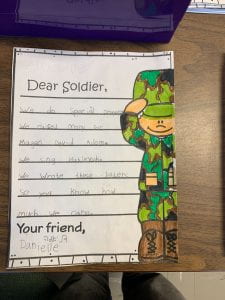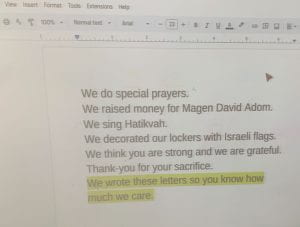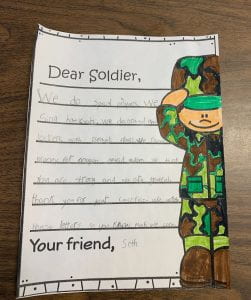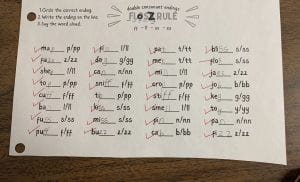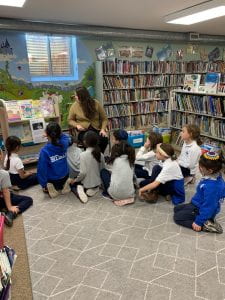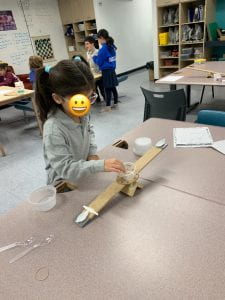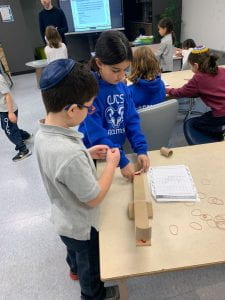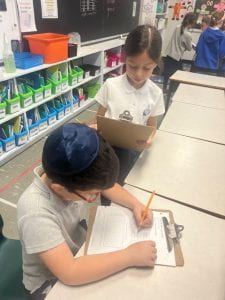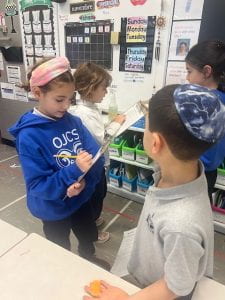Our students are so excited to show you how they own their own learning. We will be posting their own blogfolios this week. We were very impressed with how they truly understood what a reflection is and how reflecting will help them develop next steps in order to move forward on their personalized learning journey. This was a strong team effort, thank-you Ms. Cleveland for making the math reflections happen and Madame Efi and Morah Dana for the French and Hebrew reflections. Please take time to share these blogs with your child. They are very proud!
Why do we reflect?
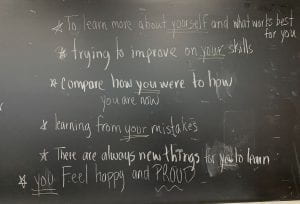
Language Arts:
Writing-Our journal entries is where we have been reflecting on Winter. For example, how we feel about winter and if we could live anywhere else during our winter months where would we choose to live and why. Their writing reflections focused on writing conventions (capitals, spacing between words and correct use of punctuation), spelling (sounding out using appropriate phonemes or applying spelling rules introduced) and most importantly, does my writing make sense (did I leave out words).
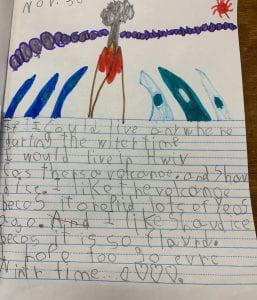
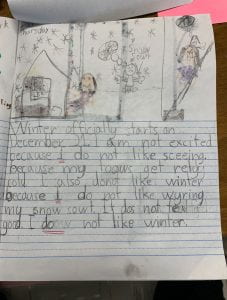
Reading-End of the term DIBELS 8 assessments were completed and as such their own personal learning journey is adjusted as they continue to work on Boost Reading. After interviews I will be sending you a detailed e-mail on how to access Amplify. This will be optional homework.
What is Amplify reading?
Amplify is the new reading platform (the umbrella company) that the OJCS purchased licences for this year to use as a pilot project to enhance our current reading programs. We bought three programs for our school through Amplify, each explained below.
- mClass – DIBELS 8 assessment
- Boost Reading
Why did we choose Amplify?
It is the platform that most closely aligns with the evidence-based body of research referred to as the ‘Science of Reading’. The Science of Reading research shows the need for students to have word recognition skills (such as phonemic awareness, decoding skills through phonics, and reading fluency) and language comprehension (including knowledge of vocabulary, morphology, and syntax) to read and comprehend text.
mClass is the system that allows us to run the DIBELS 8 Assessment with all of our students in Grades K-3.
What is DIBELS?
DIBELS ® (Dynamic Indicators of Basic Early Literacy Skills) is a set of procedures and measures for assessing the acquisition of literacy skills. They are designed to be short (one-minute) fluency measures that can be used to regularly detect risk and monitor the development of early literacy and early reading skills. Depending on the grade – the DIBELS 8 assesses different skills, such as, (decoding, reading fluency and language comprehension). These results help us identify who is below, at or above grade level in each skill and then target instruction (i.e. with small groups, resource support, homework etc..) accordingly. This is an assessment that is completed in class with the teacher.
- Boost Reading is the reading program licence we purchased for our students K-5. Boost Reading is a literacy acceleration and remediation program that uses adaptive technology to deliver personalized learning instruction for K–5 students. The engaging world of Boost Reading adapts to each unique reader. Boost Reading was authored by experts in literacy, cognitive science, learning, and instruction. It builds on well-established principles of effective instructional design and delivery, as well as new and cutting-edge research on how students learn to read.
Can my child use this program at home?
Yes please! Get your child set up to use Boost Reading at home by making sure they have a set of headphones and a quiet place to play. Boost Reading is personalized to your child’s needs, so you don’t need to and you should NOT assist them with their learning. Once they log in, they’re ready to start using the program. Some students will begin with a placement activity that helps the program match them to the best content. To ensure the most accurate placement, it’s important that students complete each activity independently. It’s always helpful to encourage your student/child to have fun and do their best!
What will I see as a parent on report cards?
K-5 students:
On the report card, teachers will share how a student is performing in various strands related to reading, including decoding, fluency, vocabulary and comprehension. With data from the DIBELS assessment, the report cards will indicate whether the student is performing above grade, at grade or below grade level in each specific skill assessed. They will also share the next steps to target skills that are still developing.
Library-During our library periods Ms. Brigitte has continued with our monthly novel study, this month we have started a chapter book by Daniel Pinkwater.
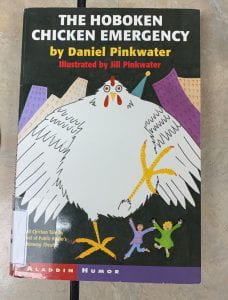
We also completed a workshop on how to create a really strong password. We discovered that a very long complicated password was NOT a great idea as we would never remember it.
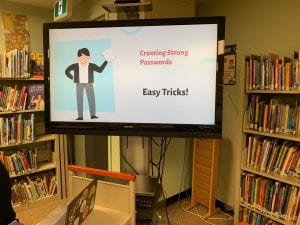
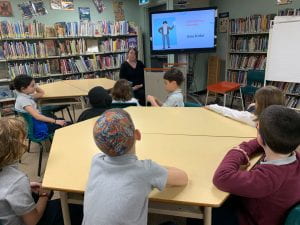
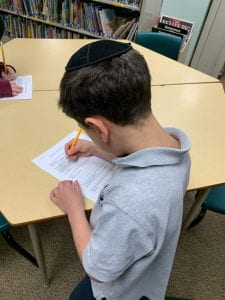
Science:
This week we will be completing our unit on Movement and Simple Machines. We will be spending our time in the Makerspace working on a pulley challenge. This is where the magic happens: problem solving, learning to take failure in stride, persevering and being open to other peoples ideas.
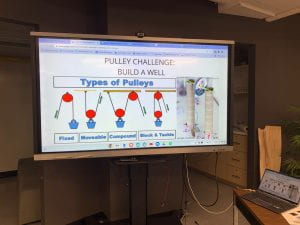
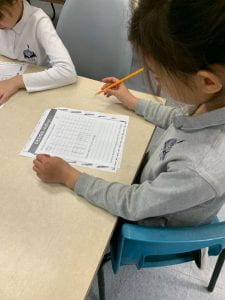
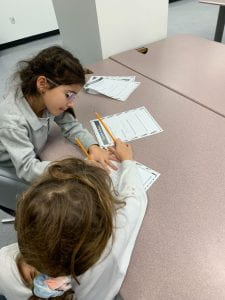
Our next unit is Liquids, Solids and Gases. Our trip to the Science and Technology Museum was a blast and the workshop we participated in was an introduction to our new unit.
A boat that floats and holds a pirate and some treasure.
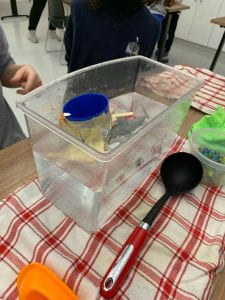
Math:
This month we are exploring 3D and 2D shapes as well as area and perimeter. In the photos below we are discovering how many edges, faces and vertices make up a cube, pyramid and rectangular prism.


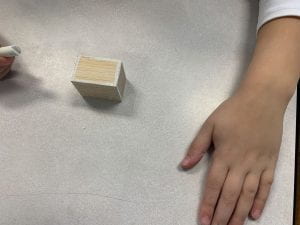
Social Studies:
We had a lot of fun with this unit. Discovering all the unique birthday and tooth fairy traditions around the world. Did you know that according to a Turkish tradition if you plant your child’s tooth on the grounds of a hospital your child is very likely to become a doctor. Sure is much less expensive than medical school!
Watch this fun video here.



